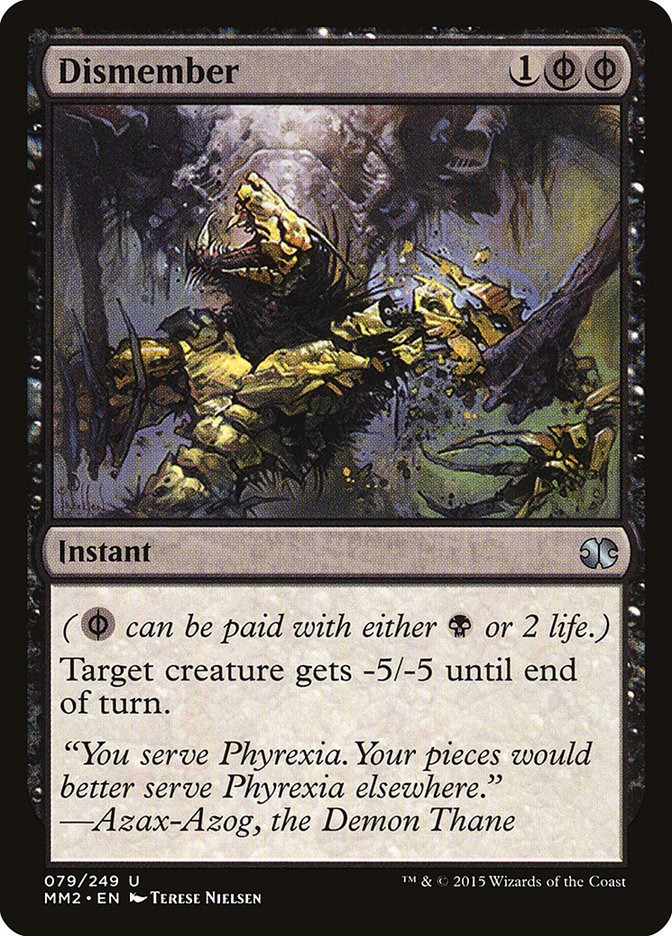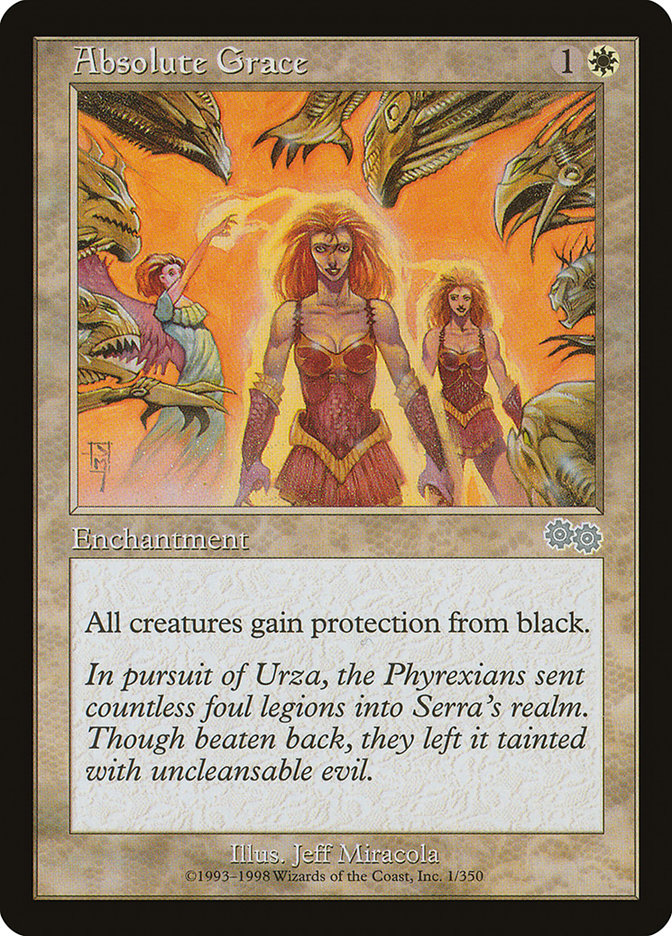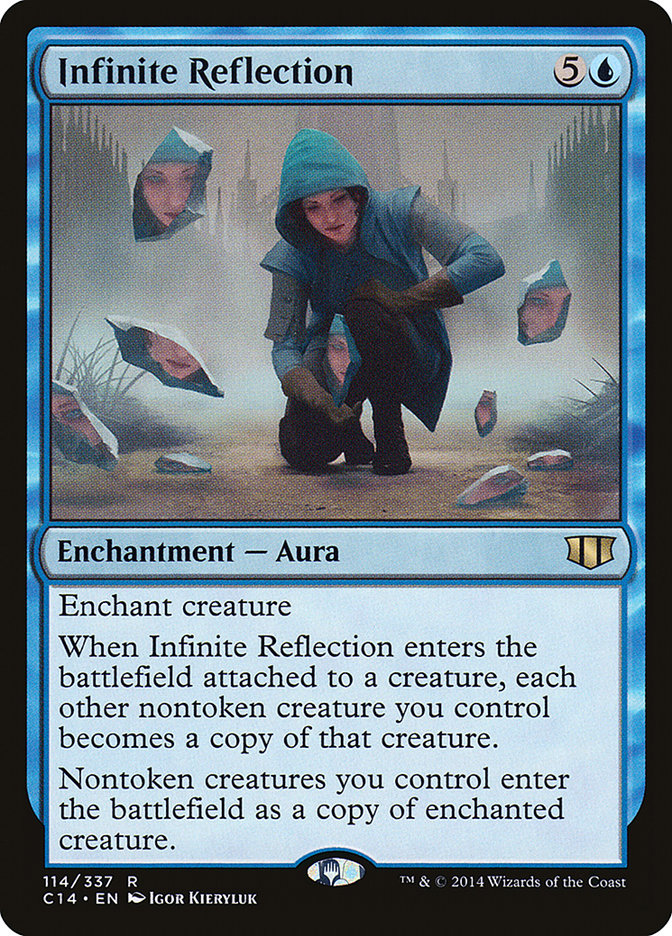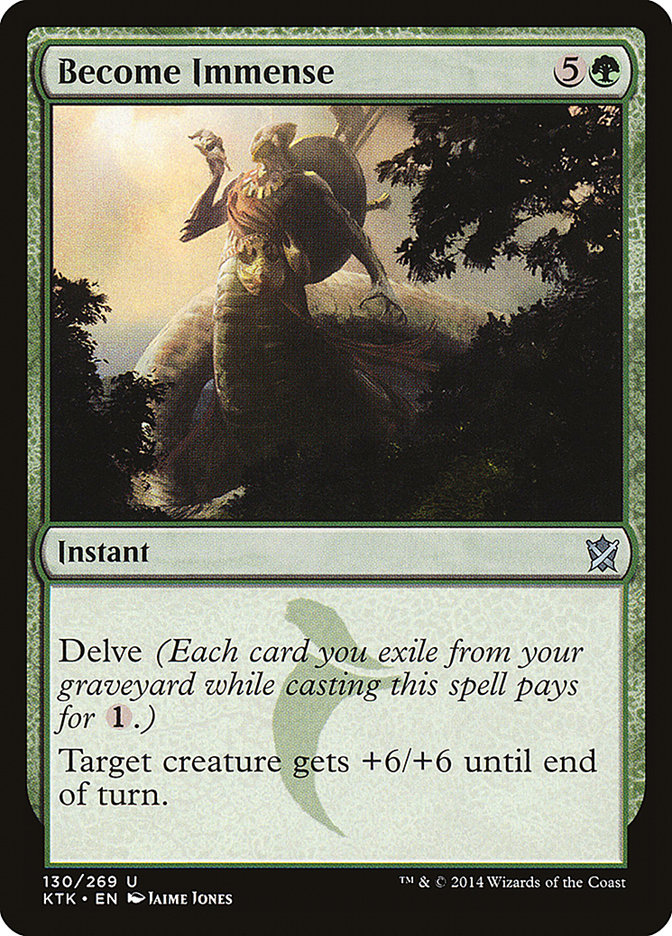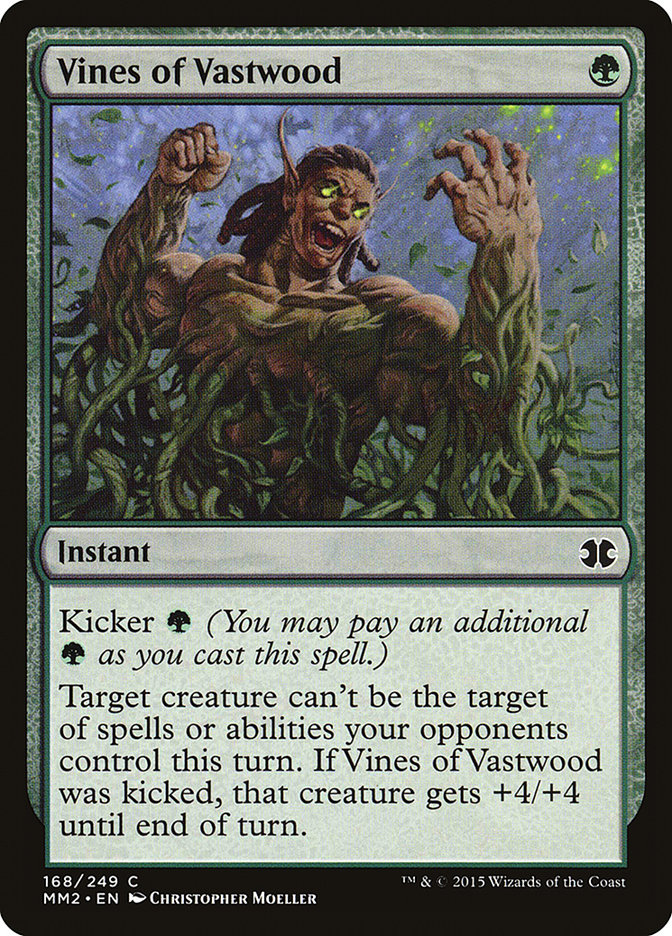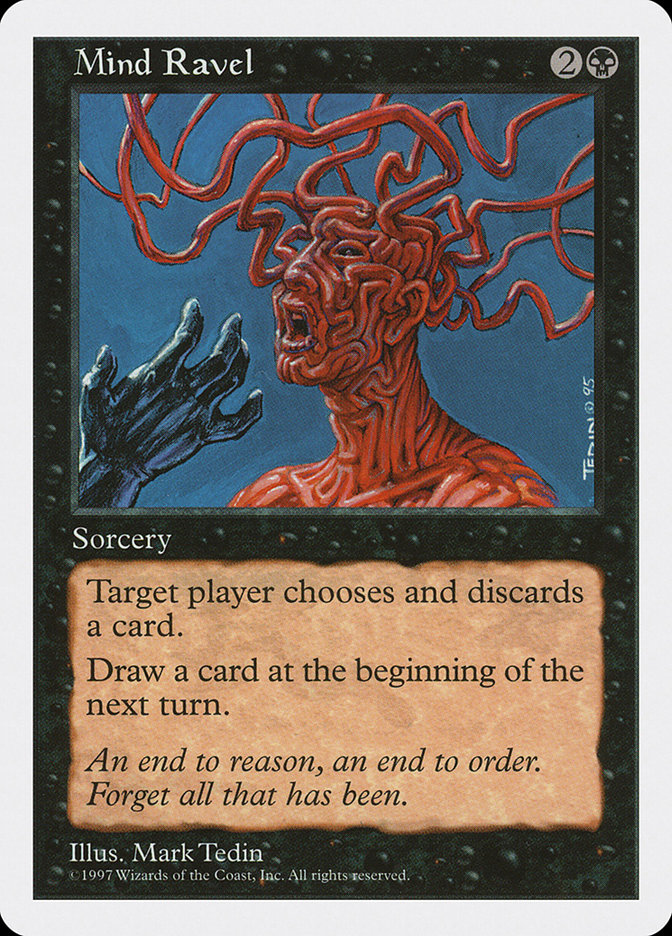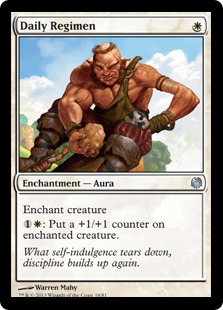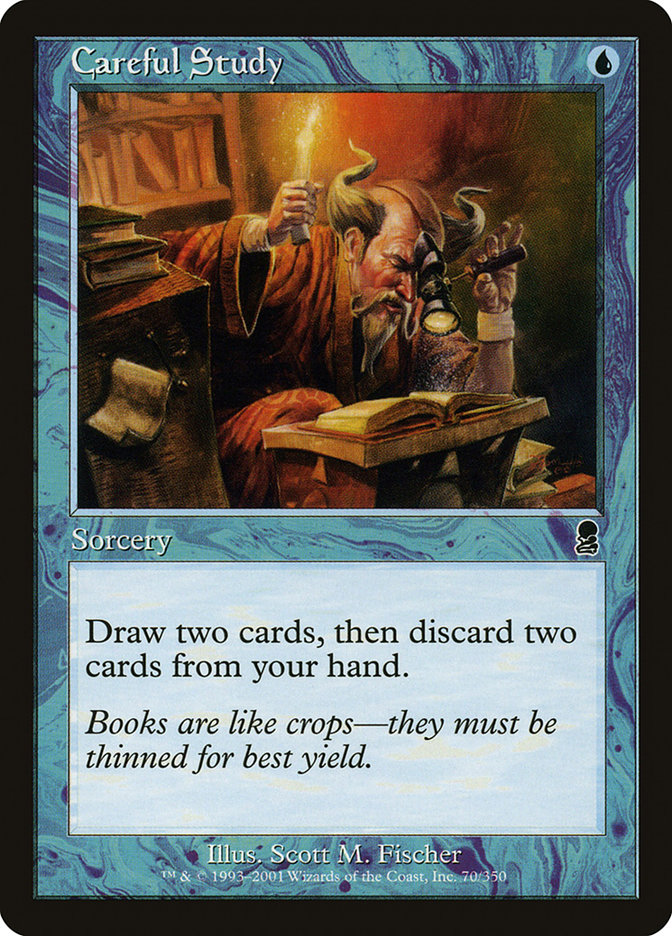In Magic, just like in life, we all make mistakes. The best of the best have turns and games they wish they’d played differently. These mistakes go from being very obvious to very subtle, but in the end we always feel regret. For me personally, my mistakes tend to be from lack of focus, and usually closer to the end of a tournament when I’m worn out and exhaustion has taken over.
Two weekends ago I made an egregious error paying four life for a Dismember when I only needed to pay two in a win-and-in playing for Top 8 at Grand Prix Dallas. That play put my opponent from being short of lethal to having lethal when I had lethal damage the following turn. I was upset with myself, but at the same time, a friend of mine, Phil Napoli, was the beneficiary of the mistake, so it was an easier pill to swallow. Needless to say, however, the topic of mistakes crossed my mind after the fact.
The sting doesn’t go right away, though. I spent the rest of the night thinking about what was going through my head at that moment and trying to rationalize. That being said, it was just a mistake. There was no rational reason, just a lapse in my thought process. My brain didn’t recognize a key piece of information, even after figuring out exactly what was in his hand based on his play.
I’ve seen a wide range of responses to mistakes, from not caring at all and moving on to being on the verge of quitting the game altogether. I think we need to learn from our mistakes, and the only way we can learn from our mistakes is by learning how to cope with them to begin with. I’ll talk about some steps I generally take to get over a misplay.
I used to just brush mistakes off like they were nothing and just something that happened to everyone. I think that is a fine way to react as long as you’re honest with yourself and understand that, to improve as a player, you need to acknowledge mistakes and use them as learning experiences. If we don’t acknowledge a mistake, we can’t learn from them.
Being hard on yourself doesn’t help, really. We just go in a downward spiral, making ourselves feel inadequate. I think somewhere in between indifference and self-loathing is a good place to be after a mistake. Don’t write off your mistakes and forgot them altogether, but don’t dwell on them to a point you don’t feel good about yourself either. Magic is a game first and foremost, and even for those of us playing it professionally, I truly believe that our best results will come from a genuine enjoyment of the game.
So what do I do when I make a mistake, and how do I recover from it?
Check Your Head
Well, if the mistake is in the middle of the game, I kind of think of the mistake as a sunk cost. That’s an economic term for having paid for something already and there’s no way to get the investment back, so it’s best to just make decisions moving forward as if you hadn’t made the mistake to begin with.
Try to make the best of the present and don’t worry about the past until the match is over. I literally try to forget I even made a mistake because I don’t want the thoughts to poison my mind while I still have a match I can win. After that, I shake my opponent’s hand, win or lose, and that’s when the thoughts start creeping in.
Right after a loss, even a mistake-free loss, I strongly urge you not to “tilt.” I’ve seen plenty of players who can win and lose with grace, but I’ve also encountered the kind of player who feels the need to take out frustrations on their opponents.
Magic isn’t personal. We all enter a tournament, get randomly paired, and try our best to win each match. If everything your opponent has done is within the rules of the game, be courteous to them. You are no more deserving than they are to win a given match. Win or lose, I shake my opponent’s hand as a sign of respect. Some people feel it’s rude if the winner extends the hand; I strongly disagree with this sentiment. I shake my opponent’s hand out of respect for the competition and my opponent. When I played sports as a kid, after the game, win or lose, both teams lined up and shook hands. This was just customary and this is how I’ve always viewed competition, respecting each and every opponent I face. Let’s do the community a favor and respect each other.
After the match is over, however, it’s time for reflection.
The Story Circle
The first thing I do after making a mistake is talk to my friends, and other players, about mistakes they’ve made. There’s something about discussing other people’s mistakes with them that makes me feel better, like I’m not alone. Knowing that other great players make mistakes too should help us understand that we’re not defective, we’re just people, and people make mistakes. Magic is a great game with a great community behind it. You will always find people who will help make you feel better regardless of the situation. Take advantage of it.
The next thing I do after making a mistake is think about my mindset and situation during the match in which I made a mistake. Was I tired? Did I eat that day? Did I play around something I shouldn’t have? Did I just brain-fart? It’s important to me to know what led to the mistake I made so I can try to shape my behavior to prevent those mistakes in the future. For example, I’m bad at eating during Magic tournaments. Like, really bad. I will often go to Starbucks in the morning, have a coffee and bagel, and then consume nothing to eat or drink until I go out to dinner after the event.
At one point I noticed I was doing much better at the few events my wife came to. It could be coincidence, sure, but maybe it was the fact she actually made sure I took care of myself, giving me food and water in the middle of the event. Either way, I’ve tried to make sure I stay hydrated and fed during an event, but old habits die hard.
If I can rationalize my mistake, I tend to not make a big deal about it. For instance, I played around a Vines of Vastwood when they only had three left in their deck instead of a Become Immense they had four of left.
This is just easy math that I should take the higher-percentage play, but sometimes you should trust your gut and your read on the opponent as well, so there are variables that can be factored into these decisions where you have a much better understanding within a game than you would from simply thinking about it after. I’d define myself as an intuitive person and player, and my intuition has led me to make great plays in the past. If it leads me astray occasionally, that’s a price I’m willing to pay.
If I find that I made a misplay because I was just playing around something I shouldn’t have or didn’t play around something I should have, then I try to learn from that spot. Sometimes we make a play and just don’t think through the consequences. Well, I played around Lightning Bolt, but I was going to lose to it the following turn because I was at five and they were attacking for two, so playing around it was a terrible idea; I should have just gone for the win. These are the real gems we can learn from. We can train our brain to think through these situations and how they play out if the opponent has what we think they may have.
It’s best in these scenarios to poll some friends or respected Magic players about how you approached a situation. Lay out the context of the game but try to be unbiased in your explanation. Don’t explain your thought process or any read you had on your opponent; stick to the facts initially to see how friends would react without any of these biases involved. It may be useful after to reanalyze the spot with information such as “He asked the judge a question first,” but we don’t want to bias them so we can see how they’d think through the situation themselves.
After gathering as much of this data as we can, we can find out how others think about any specific situation and learn from how they are processing it. I learn most of what I know about the game through the eyes of other players. I am like a sponge trying to absorb as much information as I can from players I respect.
If I can’t find a logical train of thought leading to my mistake, that’s the type that upsets me, but it’s also the kind of mistake we can’t really learn much about by just studying our play. We need to get into our own heads and figure out why we didn’t reach the conclusion we were supposed to and what made us just have a sudden lapse in judgement. Losing focus is generally the answer, so working on concentration is likely what we need to work on.
I was watching an SCG Tour stream once, and Andrew Boswell recommended a book called The Art of Learning by Josh Waitzkin. Josh Waitzkin was a chess prodigy and was portrayed in the movie Searching for Bobby Fischer. As a huge fan of this movie, possibly my favorite movie, I instantly ordered the book. In the book, Josh explains how he would listen to blasting music while playing and studying chess to get into a mindset of playing and learning through distraction. I would highly recommend this book to anyone interested in learning about his journey.
Now, I haven’t personally gone this far, but I think during playtesting in Pro Tour test houses, there is a very distracting atmosphere at times. Often I’m wiping away draft commons and unused proxies, listening to other people’s conversations, and sometimes I’m extremely cramped in tight spaces. I notice my play during testing is generally at its worst because of these distractions, but when it’s time for the Pro Tour, I’m usually on my game and don’t feed into any smaller distractions. Now, I’m not saying to go get a bunch of friends together to rip your house apart while you’re playing Magic, but instead of trying to remove yourself from distraction entirely when testing, maybe we should be trying to play and learn through the distractions.
A lot of people may instruct you to take a little beak from Magic to take your mind off mistakes or losing. I do condone taking a break if you’re on the verge of burnout, but I have the exact opposite approach if I don’t feel I played my best. Ever go play basketball with some friends, or yourself, just shooting around, and it’s time to go, and you say to yourself, “I just want to make this three-pointer first?” This is how I approach making a mistake in Magic. I love to just play more Magic after I feel I’m not playing my best. I have a hunger to play Magic until I feel I’m playing well. I don’t know if it’s the mistake putting me in check, telling me “Hey, don’t get lazy now, buddy,” or if it’s just a need to feel like I’m still a good player, so I play until I feel that way. Either way, I’m going to keep shooting until I hit that three.
Human Error
So, how can we stop making mistakes? Sorry, there’s basically no answer to this question. We can certainly try to minimize them, though.
First of all, to stop making as many mistakes, if you play quickly, slow down a little. Think about each phase of the game and how everything you do will have its in-game consequences. I once instructed a friend of mine I was Skyping with while we played Magic Online that he should be asking himself, “What happens when I make this play?” after any decision that wasn’t completely routine like playing my three-drop on turn 3. By asking yourself this question before you make a play, you can train yourself to play out the game from the point after that from both sides of the table. Look at each play, see where the endpoint is, and determine which spot leaves you with the best chances of winning the game.
By doing this I trained myself to stop making as many “stupid” mistakes because I was thinking more in-depth about the details of the game. Sometimes I forget to do this, and that’s when I’m more likely to make an error.
Another way to stop making mistakes is simply to play more. Get yourself comfortable with the format of the next tournament you’re preparing for. Don’t just pick up a deck and assume you’ll play it well. I used to think I was the kind of person who could do this, and maybe in the past I was. But Magic has gotten way too complex to just simply pick up a deck and play perfectly. Do yourself a favor and play a few games with your deck before you play an event.
Finally, if you want to make fewer mistakes, go over your games, whether it’s by yourself or with a peer. You can have a friend watch you play if it’s paper Magic and watch recordings on Magic Online. Study your play and find holes. It may even be worthwhile to save old recorded matches if you can and look back at them later. You may find more mistakes in the past and notice improvement as you progress.
There’s no clear answer on how to recover from a mistake, but I thought I’d try to steer you in the right direction of recovering from mistakes and learning from them. We all make mistakes. Some choose to run from them; the best will embrace them, and learn from them.


